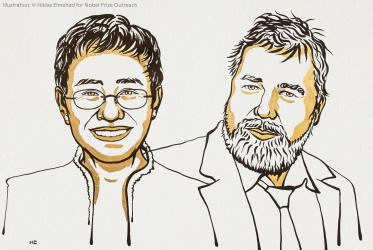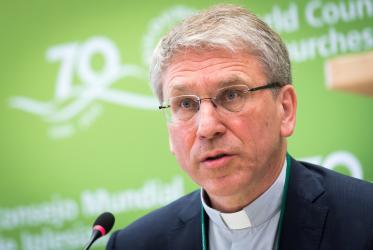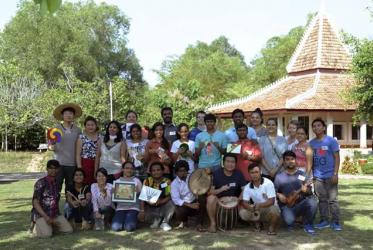Displaying 1 - 20 of 20
14 October 2021
Le COE félicite les récipiendaires du prix Nobel de la paix 2021
11 October 2021
New student body at Bossey Ecumenical Institute “a source of joy”
14 September 2020
WCC condemns massacre of farmers in Philippines
12 April 2019
Le COE condamne le massacre de fermiers aux Philippines
12 April 2019
All pilgrim routes lead to COP24
11 December 2018
Diakonia: “a tool to reach abundance of life”
24 July 2018
Seven weeks of Lent highlight water justice in Latin America
12 February 2018
Climate pilgrimage toward COP21 pauses in Geneva
05 November 2015
Asian youth call for justice and peace
13 September 2013








